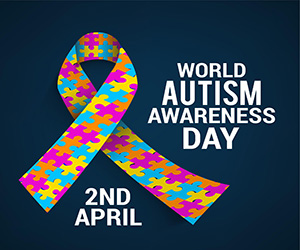I am currently participating in a 5-day forum on Advancing Equity in Aging. The 4th day included a presentation on equity and access in the Alzheimer’s community. The information shared is important in advancing the work I do within my agency as well as advocating for system change in how care, resources, and support are provided to the aging population specifically those suffering from Dementia or Alzheimer’s.
To start with, let’s define exactly what Alzheimer’s and Dementia are and their relationship to one another.
Dementia is a brain condition that affects parts of the brain that control thought, memory, and language. and Alzheimer’s disease is the most common form of dementia. While the risk of developing Alzheimer’s disease increases with age, Alzheimer’s disease is not considered a “normal” part of aging. Most people living with Alzheimer’s disease are older than 65 years; however, people younger than age 65 can develop Alzheimer’s disease (though it is not common.) I’ll cover that later in this post.
I must admit, aging or growing old is a little frightening for me. I guess it’s mind over matter. Thinking of all the negative things that can occur as we get older. For example, losing your hearing, vision and most importantly, you brain use – lightly put, forgetfulness. However, we know forgetting is just a small part of the common not remembering and even deadly!
It’s scary to watch our parents, a loved one, or someone we know age and then see the decline in their memory. I get nervous when I don’t remember someone’s name or where a placed an item. So, imagine a person who forgets a family member or doesn’t even remember who they are. Many people don’t understand Alzheimer’s/Dementia that was once thought of as being a natural progression of aging.
Because this disease, it is critical that people are aware of what it is, symptoms, treatment, progression, and resources. One of the first steps toward raising awareness is educating people on important facts concerning the progression of the illness and the number of older adults that it affects around the world. Alzheimer’s disease is a growing public health crisis in New York and Washington, D.C.
The most recent data show for New York indicates:
- 410,000 people aged 65 and older living with Alzheimer’s in New York.
- 10.5% of people aged 45 and older have subjective cognitive decline.
The most recent data for D.C. shows:
- 8,900 people aged 65 and older living with Alzheimer’s in Washington, D.C.
- 12.1% of people aged 45 and older have subjective cognitive decline.
Without an effective treatment or cure, the impact of Alzheimer’s will continue to rise and the numbers in both New York and Washington, D.C. are escalating. I should also note that every three seconds someone in the world develops dementia, with nearly 50 million people currently living with the disease worldwide. Perhaps more alarmingly, that number is expected to reach 132 million by 2050.
What You Should Know
The following are a few essential facts that everyone should know:
- Many elderly people living with Alzheimer’s don’t know they have it. However, there are early signs of dementia that include problems speaking or finding the right words during conversations, behavioral changes, and difficulty with daily tasks like dressing. However according to the Alzheimer’s Association, even after these symptoms are recognized by a health professional, only 45% of patients are told by their doctors of their diagnosis. The failure to disclose the diagnosis to patients and their caregivers can prevent seniors from receiving the early treatment they need.
- Dementia impacts more people every year. It is estimated that around 44 million people in the world are currently living with dementia. This high number is estimated to continue to increase over the years, rising to 135 million by 2050.
- Unfortunately, according to the Alzheimer’s Association, this disease often leads to premature death. It’s essential that individuals are aware that Alzheimer’s is the sixth leading cause of death among the U.S. population. As there is currently no cure for dementia, the disease is the only illness in the country’s top 10 causes of death that can’t be prevented or even slowed, noted the source.
Normal Memory Loss – Or Alzheimer’s Disease/Dementia?
Although everyone’s brain changes as they age, it’s important to understand that Alzheimer’s disease is not a normal part of aging. Memory loss is typically one of the first warning signs of Alzheimer’s disease. In the early stages of the disease, these can include:
- Getting lost in familiar places
- Having trouble handling money and paying bills
- Repeating questions
- Taking longer to complete normal daily tasks
- Displaying poor judgment
- Losing things or misplacing them in odd places
- Displaying mood and personality changes
It’s time to consult a doctor when memory lapses become frequent enough or sufficiently noticeable to concern you or a family member. Early diagnosis can treat reversible causes of memory loss or improve the quality of life in Alzheimer’s or other types of dementia.
The month of June is proclaimed as Alzheimer’s & Brain Awareness Month. Although we are in the month of July, I feel continuing to highlight this disease is worth keeping at the forefront of awareness. People should know there is hope out there and that the Alzheimer’s Disease and Related Disorders Association, Inc works diligently for and towards eradicating this disease.
The Alzheimer’s Disease and Related Disorders Association, Inc. is a volunteer health organization that continues to focus on care, support and research for Alzheimer’s disease. The organization has chapters and communities across the nation, with its national office located in Chicago and the public policy office in Washington, D.C. Its mission is “to eliminate Alzheimer’s disease through the advancement of research; to provide and enhance care and support for all affected, and to reduce the risk of dementia through the promotion of brain health.
Earlier in this post, I mentioned that people younger than age 65 can develop Alzheimer’s disease. Although not all dementia is Alzheimer. However, too few realize today that dementia can impact younger adults. FTD, also known as frontotemporal dementia, frontotemporal degeneration, or Pick’s disease, is the most common dementia diagnosed before age 60. FTD brings progressive changes to personality, language, decision-making, behavior, and movement. FTD is a group of diseases affecting the same brain regions. These include behavioral variant FTD, primary progressive aphasia (PPA), corticobasal degeneration, progressive supranuclear palsy, and FTD/ALS.
Today, there are no treatments. There is no cure. But support is available. Access the resources available through these links below for more information:
Alzheimer’s Disease and Related Disorders Association, Inc. at https://www.alz.org/


















Add comment